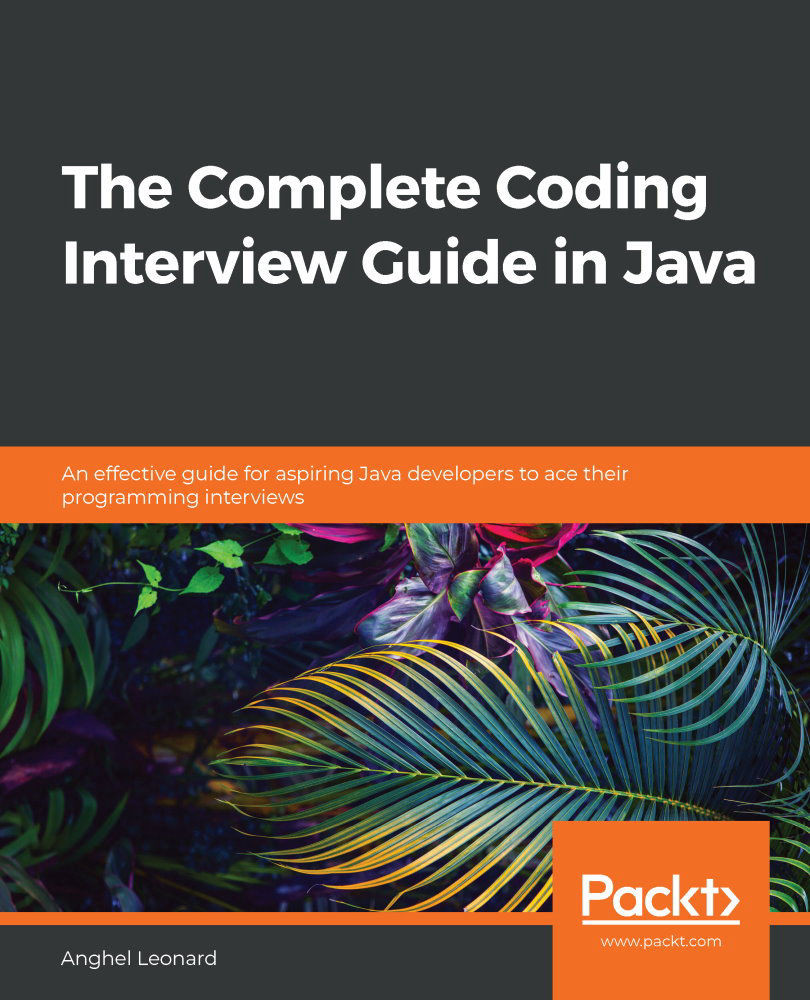Overview of this book
Java is one of the most sought-after programming languages in the job market, but cracking the coding interview in this challenging economy might not be easy. This comprehensive guide will help you to tackle various challenges faced in a coding job interview and avoid common interview mistakes, and will ultimately guide you toward landing your job as a Java developer.
This book contains two crucial elements of coding interviews - a brief section that will take you through non-technical interview questions, while the more comprehensive part covers over 200 coding interview problems along with their hands-on solutions. This book will help you to develop skills in data structures and algorithms, which technical interviewers look for in a candidate, by solving various problems based on these topics covering a wide range of concepts such as arrays, strings, maps, linked lists, sorting, and searching. You'll find out how to approach a coding interview problem in a structured way that produces faster results. Toward the final chapters, you'll learn to solve tricky questions about concurrency, functional programming, and system scalability.
By the end of this book, you'll have learned how to solve Java coding problems commonly used in interviews, and will have developed the confidence to secure your Java-centric dream job.



 Free Chapter
Free Chapter
